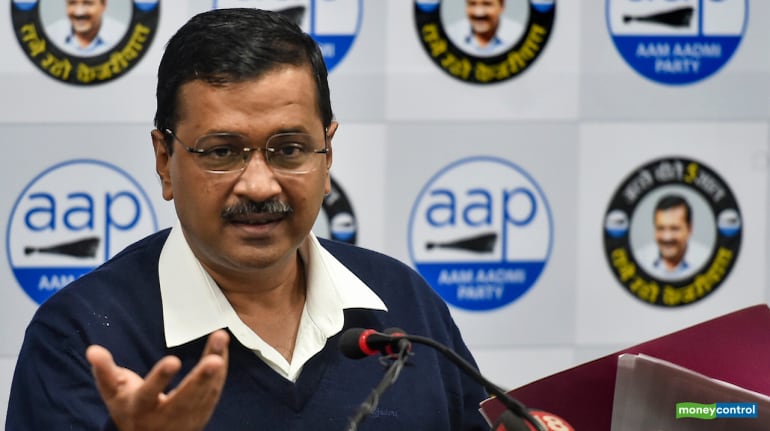



Earlier this month, the Election Commission (EC) recognised the Aam Aadmi Party (AAP) as a national party — a move that is likely to give a fresh impetus to its expansion plans. The first election that AAP will contest after getting the national party tag is Karnataka, polling for which will take place on 10 May. Party leaders are of the view that performing well in Karnataka could “open the doors’ for its electoral prospects in southern Indian states.
AAP is currently in power in two northern states, Delhi and Punjab, and has legislators in the coastal states of Goa and Gujarat. If it manages to open its account in Karnataka, it would be the first such instance for AAP in a southern Indian state. While AAP leaders are hopeful of this, political experts feel the party still has a long way to go before it has a significant electoral presence in Karnataka.
The ongoing elections in Karnataka are expected to see a tight contest between the incumbent Bharatiya Janata Party (BJP) and the main opposition Congress. Regional force Janata Dal (Secular) could also play a key role. The counting of votes will take place on 13 May.
Poor show so farThis is not the first time that AAP is contesting Karnataka elections. In 2018 it contested 28 out of the assembly 224 seats in the state and lost in all of them, garnering a vote share of just 0.06%. That year, it also fielded candidates in another southern state, Telangana. There, too, it unsuccessfully contested 41 out of 119 seats and got the same vote share. In this election, AAP is contesting more than 210 seats in Karnataka.
“Historically, Karnataka has always been a good ground for political parties to thrive. With AAP contesting more than 200 seats, there is a paradigm shift for the first time in so many years,” Brijesh Kalappa, AAP’s communication incharge of the state, told MoneyControl. He added that the party’s campaign is getting a ‘good response’ on the ground, particularly on its anti-corruption plank.
Last month, AAP had released its manifesto for the Karnataka elections with ten key promises, along the lines of Delhi and Punjab. They include 300 units of free electricity per month, 80 percent reservation for locals in jobs and 33 percent reservation for women in government jobs, apart from increasing employment opportunities, according to a report by news agency Press Trust of India.
“The election plank in Karnataka is based on issues that we have always focused on. Our key attention will be on healthcare services, schools, free bus rides for women and free electricity,” Kalappa, who is contesting from Chickpet assembly constituency, added.
Eye on other statesAAP leaders are hopeful of maintaining their Gujarat momentum where they won 5 seats last year along with 12.92% vote share. The Karnataka elections will be followed by three more assembly elections later this year — in Rajasthan, Madhya Pradesh and Chhattisgarh — and the Lok Sabha elections early next year. The party is also likely to contest the next assembly elections in Odisha and Kerala.
“After getting the national party tag, our focus is to consolidate in every state and strengthen our on-ground organisation,” Nishikant Mohapatra, senior party leader and AAP’s Odisha incharge, told MoneyControl. “In Karnataka, we have a strong presence and a lot of young leaders have joined us. It is a key election because it will open our prospects in southern India and be helpful in our overall expansion plans,” he added.
The Odisha assembly poll will be held next year alongside the Lok Sabha election. Mahapatra said that a final call on contesting will be taken closer to the elections but the national party tag is piquing interest among people in the state.
In Karnataka, top leaders of the AAP have hit the campaign trail. Punjab chief minister Bhagwant Mann and lawmakers Sanjay Singh and Raghav Chadha have been addressing public meetings. Last month, the campaign was kicked off by Kejriwal. However, the electoral developments come at a time when Kejriwal appeared recently before the CBI (Central Bureau of Investigation) for questioning in the alleged excise policy scam case and his deputy Manish Sisodia continues to be in judicial custody.
‘An uphill task’Political experts feel that Karnataka is an uphill task for AAP as its appeal is limited to urban areas and that it may not be able to replicate its Gujarat show in the southern state.
“I do not think that AAP is very popular in Karnataka. People know them in urban areas, that, too, in metro cities, but the same is not true for constituencies in rural areas. I think they will get a limited vote share in this election,” said Veena Devi, professor at the department of political science, Bangalore University, and state coordinator of the Lokniti Network, run by the Centre of Developing Societies (CSDS).
Anuja is an independent journalist based in New Delhi who writes at the intersection of policy and politics. She tweets at @just_anujaDiscover the latest Business News, Sensex, and Nifty updates. Obtain Personal Finance insights, tax queries, and expert opinions on Moneycontrol or download the Moneycontrol App to stay updated!
Find the best of Al News in one place, specially curated for you every weekend.
Stay on top of the latest tech trends and biggest startup news.